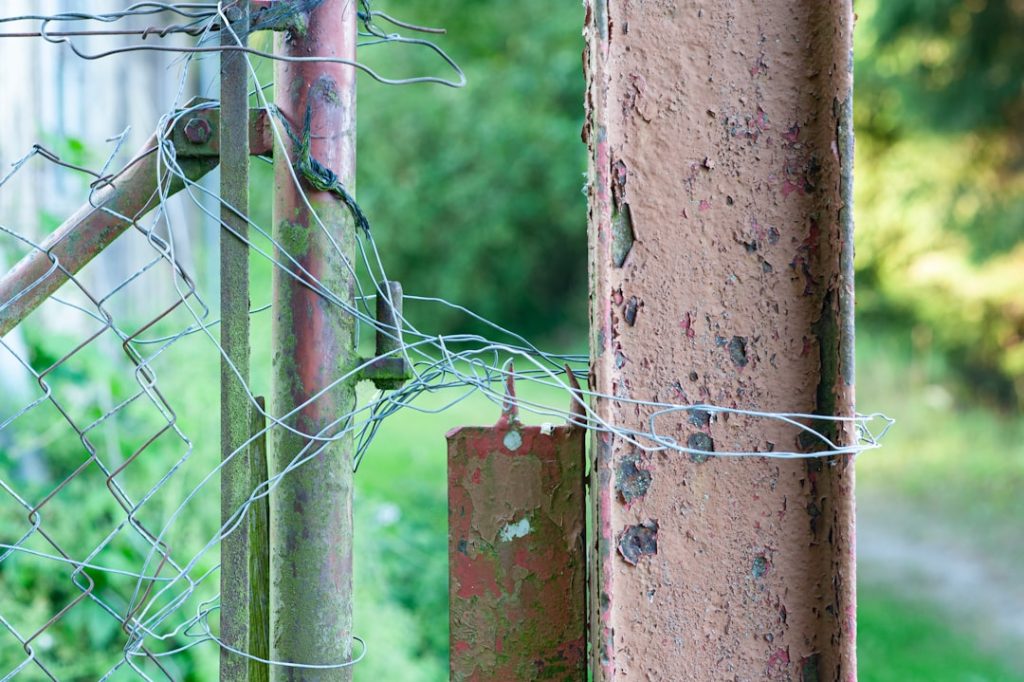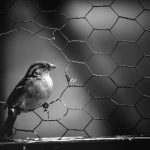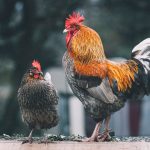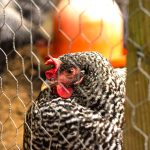Protecting chickens from predators is a significant challenge in poultry husbandry. Various animals pose threats to chickens, including foxes, raccoons, hawks, and even domestic pets. These predators can cause physical harm, stress, and anxiety to the flock, potentially leading to decreased egg production and overall poor health.
Predators not only risk injuring or killing chickens but can also introduce diseases to the flock, which may have severe consequences. Understanding these dangers is crucial for implementing effective protective measures. Common predators include:
1.
Foxes: Known for their cunning and ability to dig under fences. 2. Raccoons: Skilled climbers that can manipulate simple locks and latches.
3. Hawks: Aerial predators that can swoop down and capture chickens. 4.
Domestic pets: Dogs and cats may view chickens as prey. To safeguard chickens, poultry keepers should:
1. Install secure fencing and coops
2.
Use predator-proof locks
3. Provide overhead protection
4. Regularly inspect and maintain enclosures
5.
Consider using guardian animals or deterrent devices
By recognizing potential threats and taking proactive steps, chicken owners can significantly reduce the risk of predator attacks and ensure the safety and well-being of their flock.
Table of Contents
- 1 Creating Physical Barriers
- 2 Using Natural Deterrents
- 3 Providing Alternative Sources of Food
- 4 Training and Supervising the Chickens
- 5 Seeking Professional Advice
- 6 Monitoring and Adjusting the Plan
- 7 FAQs
- 7.1 What are some common ways chickens can damage plants?
- 7.2 What are some methods to protect plants from chickens?
- 7.3 Are there any plants that are chicken-resistant?
- 7.4 How can I train my chickens to stay away from my plants?
- 7.5 Are there any natural repellents that can keep chickens away from plants?
Key Takeaways
- Understanding the Dangers
- Predators such as foxes, raccoons, and birds of prey pose a threat to chickens.
- Predators can cause stress and injury to chickens, leading to decreased egg production and even death.
- Creating Physical Barriers
- Install sturdy fencing around the chicken coop and run to keep predators out.
- Use hardware cloth with small openings to prevent predators from squeezing through or digging under the fence.
- Using Natural Deterrents
- Plant thorny bushes or use prickly mulch around the coop to deter predators.
- Install motion-activated lights or sprinklers to startle predators and keep them away from the chickens.
- Providing Alternative Sources of Food
- Keep the chicken feed in secure containers to prevent attracting predators.
- Allow chickens to forage for insects and plants in a protected area to reduce their reliance on commercial feed.
- Training and Supervising the Chickens
- Train chickens to return to the coop at night by providing treats and using a consistent routine.
- Supervise free-ranging chickens to ensure their safety and intervene if predators are spotted.
- Seeking Professional Advice
- Consult with local agricultural extension offices or poultry experts for personalized advice on predator control.
- Consider hiring a professional wildlife control service for assistance with persistent predator problems.
- Monitoring and Adjusting the Plan
- Regularly inspect the coop and run for signs of predator activity and make necessary adjustments to the defenses.
- Keep track of any changes in predator behavior and adapt the predator control plan accordingly.
Creating Physical Barriers
Creating a Secure Perimeter
One of the most effective ways to protect your chickens from predators is by creating physical barriers around their coop and run. This can include installing fencing around the perimeter of the area where your chickens roam, as well as adding a secure roof to their coop to prevent aerial attacks from birds of prey.
Reinforcing the Coop
Additionally, you can reinforce the coop with hardware cloth to prevent predators from digging underneath or breaking through weak spots in the structure. By creating physical barriers, you can significantly reduce the risk of predators gaining access to your chickens.
Electric Fencing: An Additional Layer of Protection
Another option for creating physical barriers is to use electric fencing, which can deliver a mild shock to predators that come into contact with it. This can be an effective deterrent for larger predators like foxes and coyotes, as well as smaller ones like raccoons. By creating physical barriers around your chickens’ living space, you can greatly reduce the risk of predators harming them and ensure their safety and well-being.
Using Natural Deterrents

In addition to physical barriers, you can also use natural deterrents to keep predators away from your chickens. One option is to plant thorny bushes or shrubs around the perimeter of their living space, which can make it more difficult for predators to approach without getting scratched or poked. Another natural deterrent is to use predator urine or feces around the area, which can signal to potential predators that there is a threat in the area.
You can also consider getting a guard animal, such as a dog or a goose, to help protect your chickens from predators. These animals can serve as an additional line of defense and can help deter potential threats from approaching your flock. By using natural deterrents, you can add an extra layer of protection for your chickens and reduce the risk of predators harming them.
Using natural deterrents is another effective way to protect your chickens from predators. This can include planting thorny bushes or shrubs around their living space, using predator urine or feces as a signal to potential threats, and getting a guard animal like a dog or a goose to help protect your flock. By using natural deterrents, you can add an extra layer of protection for your chickens and reduce the risk of predators harming them.
Providing Alternative Sources of Food
One way to reduce the risk of predators targeting your chickens is by providing alternative sources of food for them. This can include hanging feeders or using automatic feeders that dispense food at certain times of day. By providing a consistent source of food for your chickens, you can reduce the likelihood that they will venture out into areas where predators may be lurking.
Another option is to use feeders that are designed to be predator-proof, such as those with weighted doors that only open when a chicken steps on a platform. This can help prevent larger predators from accessing the food source and reduce the risk of them targeting your flock. By providing alternative sources of food for your chickens, you can help keep them safe from potential threats.
Providing alternative sources of food for your chickens is an effective way to reduce the risk of predators targeting them. This can include using hanging or automatic feeders, as well as predator-proof feeders that are designed to keep larger threats at bay. By providing a consistent source of food for your chickens, you can reduce the likelihood that they will venture out into areas where predators may be lurking and help keep them safe from potential threats.
Training and Supervising the Chickens
Another important aspect of protecting your chickens from predators is training and supervising them when they are outside of their coop and run. By training your chickens to come when called or to seek shelter when they sense danger, you can help keep them safe from potential threats. Additionally, supervising your flock when they are outside can help you identify any potential dangers and take action to protect them.
You can also consider using motion-activated lights or alarms around their living space to deter predators from approaching. By training and supervising your chickens when they are outside of their coop and run, you can help keep them safe from potential threats and reduce the risk of predators harming them. Training and supervising your chickens when they are outside of their coop and run is an important aspect of protecting them from predators.
By training them to come when called or seek shelter when they sense danger, as well as supervising them when they are outside, you can help keep them safe from potential threats. Using motion-activated lights or alarms around their living space can also help deter predators from approaching and reduce the risk of harm to your flock.
Seeking Professional Advice
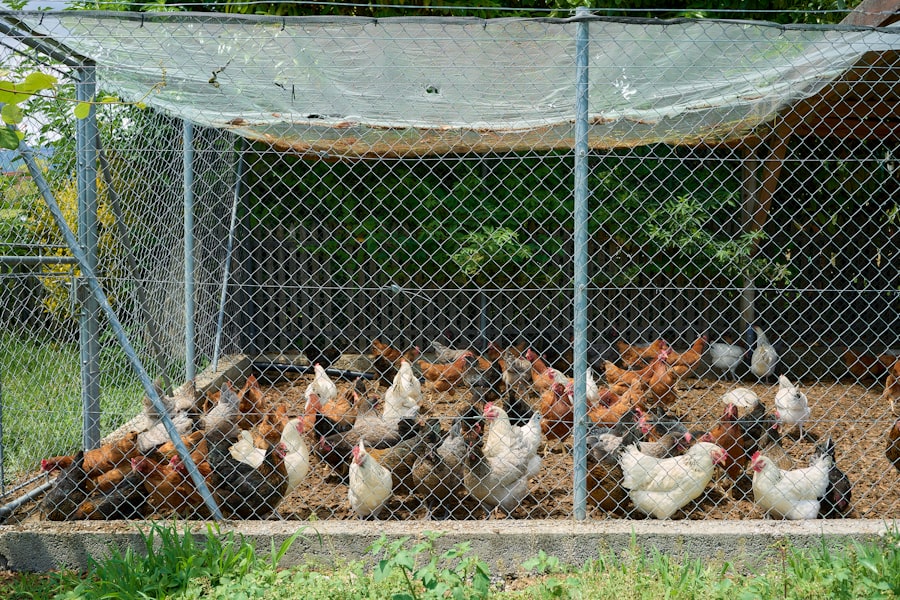
Protecting Your Chickens from Predators
Seeking Professional Advice
If you’re struggling to protect your chickens from predators, it may be helpful to seek professional advice from a veterinarian or an experienced poultry keeper. They can provide valuable insights and recommendations for keeping your flock safe from potential threats. Additionally, they may be able to offer guidance on specific predator control methods that are best suited for your particular situation.
Identifying Weaknesses and Making Adjustments
Professional advice can also help you identify any weaknesses in your current predator control plan and make necessary adjustments to better protect your flock. By seeking professional advice, you can gain valuable knowledge and expertise that can help keep your chickens safe from potential threats.
Benefits of Professional Guidance
Seeking professional advice from a veterinarian or an experienced poultry keeper can be incredibly helpful if you’re struggling to protect your chickens from predators. They can provide valuable insights and recommendations for keeping your flock safe from potential threats, as well as guidance on specific predator control methods that are best suited for your particular situation.
Monitoring and Adjusting the Plan
Once you have implemented predator control measures for your chickens, it’s important to regularly monitor their effectiveness and make any necessary adjustments. This may include checking for signs of predator activity around their living space, such as tracks or scat, as well as observing any changes in behavior among your flock. By monitoring their living space and behavior, you can identify any potential weaknesses in your predator control plan and take action to address them.
Additionally, it’s important to stay informed about any new predator threats in your area and adjust your plan accordingly. This may involve staying in touch with local wildlife authorities or other poultry keepers in your area to share information about potential threats and how best to protect against them. By regularly monitoring and adjusting your predator control plan, you can ensure that your chickens remain safe from harm.
Regularly monitoring the effectiveness of predator control measures for your chickens is crucial in ensuring their safety and well-being. This may include checking for signs of predator activity around their living space, observing any changes in behavior among your flock, and staying informed about any new predator threats in your area. By regularly monitoring and adjusting your predator control plan, you can ensure that your chickens remain safe from harm and continue to thrive.
In conclusion, protecting chickens from predators is a crucial aspect of raising a healthy and thriving flock. Understanding the dangers that predators pose is the first step in implementing effective predator control measures. Creating physical barriers, using natural deterrents, providing alternative sources of food, training and supervising the chickens, seeking professional advice, and monitoring and adjusting the plan are all important strategies for keeping chickens safe from potential threats.
By taking proactive measures to protect against predators, you can ensure the safety and well-being of your flock for years to come.
If you’re looking for ways to keep your plants safe from your chickens, you may also be interested in learning about the mating season for ducks. Understanding the behavior of ducks during mating season can help you plan and protect your plants from potential damage. Check out this article on duck mating season to learn more about how to manage your garden and poultry.
FAQs
What are some common ways chickens can damage plants?
Chickens can damage plants by scratching and pecking at them, eating the leaves and fruits, and dust bathing around the plants, which can uproot them.
What are some methods to protect plants from chickens?
Some methods to protect plants from chickens include using physical barriers such as fences or netting, planting thorny or prickly plants around the garden, and providing designated areas for chickens to forage away from the plants.
Are there any plants that are chicken-resistant?
Some plants that are known to be more resistant to chicken damage include herbs like rosemary and lavender, as well as plants with strong scents or flavors like mint and marigolds.
How can I train my chickens to stay away from my plants?
Training chickens to stay away from plants can be done by using positive reinforcement, such as providing treats in designated foraging areas, and using deterrents like motion-activated sprinklers or noise-making devices.
Are there any natural repellents that can keep chickens away from plants?
Some natural repellents that can help keep chickens away from plants include citrus peels, garlic spray, and hot pepper spray, which can be applied to the plants to deter chickens from pecking at them.

Meet Walter, the feathered-friend fanatic of Florida! Nestled in the sunshine state, Walter struts through life with his feathered companions, clucking his way to happiness. With a coop that’s fancier than a five-star hotel, he’s the Don Juan of the chicken world. When he’s not teaching his hens to do the cha-cha, you’ll find him in a heated debate with his prized rooster, Sir Clucks-a-Lot. Walter’s poultry passion is no yolk; he’s the sunny-side-up guy you never knew you needed in your flock of friends!
Meet Walter, the feathered-friend fanatic of Florida! Nestled in the sunshine state, Walter struts through life with his feathered companions, clucking his way to happiness. With a coop that’s fancier than a five-star hotel, he’s the Don Juan of the chicken world. When he’s not teaching his hens to do the cha-cha, you’ll find him in a heated debate with his prized rooster, Sir Clucks-a-Lot. Walter’s poultry passion is no yolk; he’s the sunny-side-up guy you never knew you needed in your flock of friends!

